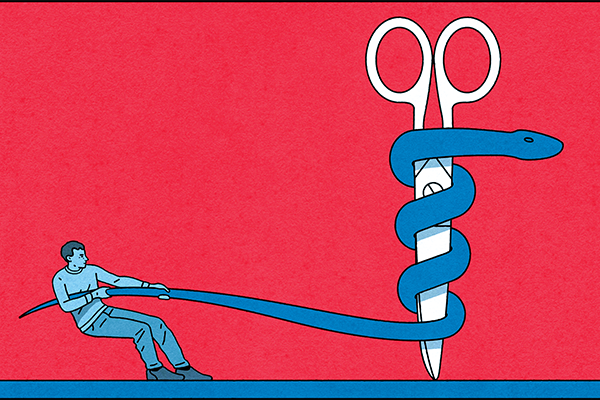Budgets reveal our true values. Americans have long prioritized that everyone, including people with disabilities, have access to high-quality health care, essential long-term services, and nutritious food. However, the new tax cut and spending package signed on July 4, 2025, reorders U.S. budget priorities and creates significant hurdles to access or use Medicaid and the Affordable Care Act marketplace insurance. This new budget is designed to deny coverage to those who need it, even if they qualify, by burdening them with additional administrative and paperwork barriers.
Medicaid covers more than 70 million low-income or disabled people, including nearly half of the nation’s children. Congress slashed nearly $1 trillion from Medicaid, a staggering 20% cut, the largest in the program’s history. Approximately 11 million people will lose coverage. If Congress also fails to extend enhanced ACA subsidies, that number could rise to 17 million. New mandated work requirements for Medicaid recipients will result in more red tape and lost coverage. Medicaid is the primary payer for long-term supports, including home and community-based services, known as HCBS, that many people with disabilities rely on to live independently. Federal cuts mean that costs will shift to states, forcing them to reduce these “optional” Medicaid services.
Imagine losing access to health care and food simultaneously.
The new law also cut nearly $200 billion from the Supplemental Nutrition Assistance Program, the country’s largest food assistance program, and expanded its work requirements. People with disabilities are twice as likely to live in poverty as those without, so many depend on both Medicaid and SNAP. Imagine losing access to health care and food simultaneously.
If you’re a Medicaid or SNAP beneficiary or an organization supporting those who are, now is the time to learn how to defend benefits and demand your rights. Here are five essential actions you can take.
1. Understand your eligibility and document everything. The new law adds administrative burdens designed to block access for people receiving Medicaid within the Affordable Care Act expansion to low-income individuals. Map out your pathway to coverage under Medicaid in your state (which may be called something else where you live). Learn your state’s Medicaid eligibility requirements inside and out. Many of the new provisions do not begin until 2026 or after, so track your mail, telephone, or email for any notices of coverage changes or new requirements. Create comprehensive checklists and keep meticulous records of all your medical information, income, assets, and any communication with Medicaid offices. Make copies of everything you submit, and note dates, times, and the names of people you speak with. Use folders, envelopes, or online services to stay organized. This documentation can be crucial when you need to appeal denied coverage or challenge delayed coverage.
2. Appeal denials and delays immediately. If your Medicaid application is denied or services are cut, you have the right to appeal. Act quickly. There are often strict and short deadlines for appeals. Seek aid from legal services or advocacy organizations, such as the federally mandated Protection and Advocacy Systems and Client Assistance Programs that specialize in Medicaid. They can help you navigate the appeal process. A third of Medicaid denials are partially or fully overturned on appeal, especially when applicants have strong documentation and advocacy.
3. Defend home and community-based services. Medicaid is the largest payer for HCBS, which allows many people with disabilities to live in their community instead of institutions. HCBS is particularly vulnerable to cuts as states face major Medicaid cost shifts. Advocate for these vital services by contacting your state legislators. Share a personal story about how HCBS enables you or someone you know to live independently. Build alliances with local disability rights groups that work to protect and expand HCBS funding.
4. Know your rights regarding SNAP and work requirements. If you rely on SNAP for food assistance, make time to learn the new work requirements and any exemptions that might apply to you. For example, you may qualify for an exemption due to health conditions, caregiving responsibilities, or other barriers to employment. If you are denied SNAP benefits, you can appeal. Connect with local food banks and anti-hunger organizations. Ask for help navigating denials, appeals, or corrections to your application.
5. Engage in grassroots advocacy and voter education. These draconian cuts illustrate a blatant disregard for the needs of your friends, family, or even yourself. Your voice is powerful. Participate in grassroots campaigns to build a larger, stronger movement of people with disabilities and allies to advocate for the full inclusion and civil rights of all people. Ask electoral candidates what their position is on community investments such as HCBS. Vote your priorities.
A promising future for all Americans hinges on strong, stable, and fully funded Medicaid and SNAP programs. Don’t let bureaucratic red tape undermine our true values.

Got something to say about what you're reading? We value your feedback!






